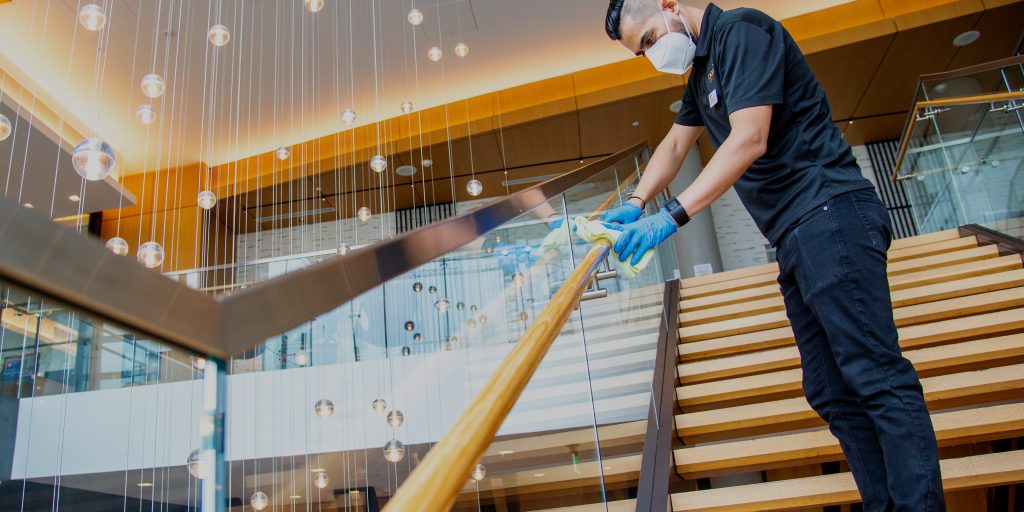In recent times, coronavirus has swept across the globe, dramatically impacting a concerning number of businesses across a wide variety of sectors.
One sector that has, however, experienced growth is the cleaning industry. Services of this nature are now playing a pivotal role in the fight to contain and, ultimately, stop the spread of COVID-19.
A key driver for the increase in demand for cleaning services is the need for businesses to provide a safe environment for any employees attending the workplace, as well as their customers – such as in the hotel sector.
How Cleaning Has Changed in the Hotel Sector
Many hotels have deemed closure necessary given the devastating events unfolding across communities and, consequently, the increased difficulty of mitigating risks.
Those who are continuing to operate are, generally speaking, doing so at just 20% of their regular capacity. For those that have stayed open, many have found themselves in a position where their usual cleaning processes largely aren’t at the required standard for combating coronavirus.
In the majority of cases, in-room housekeeping and the like simply don’t meet the minimum requirements, as determined by Government guidelines. Instead, hotels that have made the decision to stay open are introducing complex systems to manage and intensify the way in which they conduct cleaning on their premises.
This upgrade in cleaning practices will, of course, be executed in both the hotel rooms themselves, as well as the public areas, such as lobbies.
What are Hotels Doing to Address These Changes?
There are various approaches that hotel management is exploring, for instance:
- Cleaning during the day, rather than in the middle of the night, so that visitors can see that the appropriate precautions are being taken;
- Chemically treated fabrics and floor finishes, based on those that are used in hospitals;
- Antimicrobial materials and surfaces, which are capable of killing microbes, viruses and germs that come in contact with them.
In addition to this, hotels, such as The Four Seasons in New York City, are introducing contact-free housekeeping. This involves guests receiving three bags, which are for used towels, bedding and any rubbish. When they need cleaning or removal, guests must leave their bag/s at an entrance and notify housekeeping, who will then follow hotel procedures for washing and/or disposing of the contents.
When guests leave, their room is left vacant for 24 hours before staff members, who are wearing the appropriate protective clothing, conduct a deep clean of the area. The room is then left empty for another 24 hours, before housekeeping, all of whom are dressed in protective wear, prepare it for the next guest. This ensures that hotel rooms are unoccupied for two to three days, helping to protect employees and future guests.
While the future is uncertain, there are measures that your business can start taking now to manage your systems and achieve ongoing compliance. At Integrated Compliance Solutions, we offer COVID-19 Gap Analysis services, one of which is specific to the cleaning sector. If you’re a hotel or cleaning company looking to plan for post-pandemic compliance, please don’t hesitate to get in touch with our team of experienced consultants.
The information in this article was sourced from The Washington Post, Interiors and Sources and NBC News.


